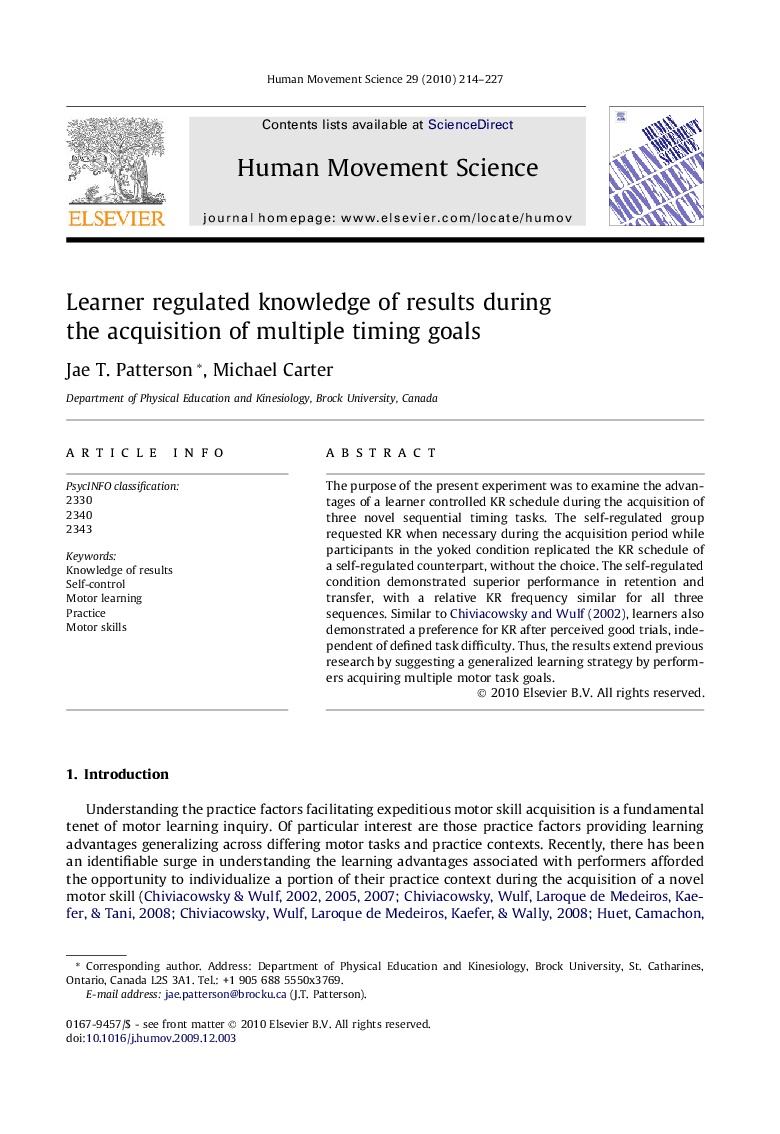| Article ID | Journal | Published Year | Pages | File Type |
|---|---|---|---|---|
| 928727 | Human Movement Science | 2010 | 14 Pages |
The purpose of the present experiment was to examine the advantages of a learner controlled KR schedule during the acquisition of three novel sequential timing tasks. The self-regulated group requested KR when necessary during the acquisition period while participants in the yoked condition replicated the KR schedule of a self-regulated counterpart, without the choice. The self-regulated condition demonstrated superior performance in retention and transfer, with a relative KR frequency similar for all three sequences. Similar to Chiviacowsky and Wulf (2002), learners also demonstrated a preference for KR after perceived good trials, independent of defined task difficulty. Thus, the results extend previous research by suggesting a generalized learning strategy by performers acquiring multiple motor task goals.
